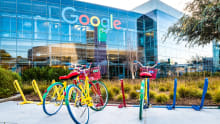Weave business strategy into people strategy: American Express CHRO

Times are tough and organizations that will emerge as winners from this would be the ones that will ensure that they take care of their employees along with their business lines. The COVID-19 crisis has given way to unprecedented challenges at the workplace, and progressive organizations today are finding newer ways each day to ensure they keep their business lines running along and their employees motivated. After all, an ideal employee experience will lead to an ideal customer experience.
In this exclusive interaction with People Matters, Kabir Julka, Vice President & Chief Human Resource Officer for American Express India, talks about how they have redesigned their HR function to the ‘Colleague Experience Group’ and what Colleague Experience means to them as an organization. He also shares how, at the heart of it, an organization and its leadership should prioritize its people, since colleagues enable strategies and deliver towards long-term value creation.
Julka is also a member of the Board of American Express Banking Corp. and American Express India Private Ltd. He has been with American Express for 11 years, with an overall experience of over 17 years spanning across multiple leadership roles in India and Asia. In his current role, Julka leads the HR function for American Express in India partnering with business leaders to drive people strategies that enable achievement of the company’s strategic business goals in India. His team enables business growth through platforms that deliver on talent, leadership and culture priorities across One AXP India. He is also focused on leading business through change in partnership with senior market and global leaders.
Here are the excerpts from the interview.
What does “Employee Experience” stand for in today’s workplace context?
At American Express, we call our employees as Colleagues. We have redesigned our HR function to the ‘Colleague Experience Group’ and created a powerful vision, mission and three-year roadmap designed to help us be much more connected to our colleagues and seek to truly understand and improve their current and future experiences.
From the moment a colleague joins a company, till the time he/ she leaves the organization, the overall journey of that person at the workplace is ‘Employee aka Colleague Experience’. At American Express, we obsess over understanding our colleagues at a deeper level. We co-create simple and great ways of working that enable everyone to be and deliver their best. We believe, a great colleague experience can have a positive impact on everything - right from having a happier work culture, to retention, and positive business revenue impact.
How is Employee Experience different or evolved than things like organizational culture, employee engagement, etc.?
There are multiple aspects of colleague experience and engagement is only a part of the overall journey. For example, colleague engagement may be defined as the degree to which colleagues feel zealous about their roles, have a commitment to the organization, or even have an emotional connection to the job and workplace. However, after more than a decade of companies focusing on the idea of colleague engagement, studies show that most are not making progress, and colleague engagement in the many parts of the world is stagnant.
Experts believe this is due to companies equating engagement with a narrow focus on basic perks, such as free food. Such aspects could be an end outcome of a colleague experience strategy. It does not supplant a holistic and long-term approach to creating happy, loyal and productive colleagues. Thus, colleague engagement is a vital part of the colleague experience, but it is not all-encompassing. At the heart of it, an organization and its leadership should prioritize its people, since colleagues enable strategies and deliver towards long-term value creation.
If you want to improve your employee experience, productivity, wellbeing, and output, what should you do? Where do you start?
We feel that colleagues are the backbone of any successful company, that is why it is important to create a colleague experience that boosts productivity and colleague wellbeing. Building a colleague experience framework begins with an assessment of colleagues’ needs, considering their perspective and creating a personalized workplace. This allows companies to understand what their colleagues require to feel fulfilled and develop a sense of pride for being part of an organization. Companies must break down every key touchpoint throughout the colleague's journey and weave the business strategy into its people strategy and colleague experience framework to facilitate success.
Aiming at creating an enriching culture and productive workplace, our global vision for 2020 and beyond revolves around three strategic pillars:
- Delivering a great colleague experience: By creating an inclusive environment and integrating inclusive leadership behavior and diversity practices. We have designed products, processes and tools that revolve around colleagues, based-on colleague data and insights.
- Growing the best talent: We aim to create a high-quality, end-to-end candidate experience for all stakeholders and develop best-in-class leaders who will ensure colleague growth through performance and development feedback.
- Develop new ways of working to unlock enterprise value: Create an environment of continuous improvement, innovation, agility and enterprise design where wellbeing is a focus for all colleagues.
What are the advantages for companies investing in it? Does it help to retain talent?
We believe that when colleagues’ feel a strong sense of belonging with their organization, they choose to stay, grow and drive results. We are committed to providing our colleagues with a variety of resources to support their overall wellbeing, whether it is physical, financial, psychological or social. Positioning colleagues as brand ambassadors also encourages them to demonstrate their loyalty and pride for the organization. This helps build a strong employer brand eco-system, resulting in retaining and attracting talent.
How do people managers play a part in designing employee-centric moments for employees?
A colleague’s leader contributes in a large way to how the colleague perceives and experiences the organization. Leaders are key stakeholders in a colleague’s lifecycle and their ownership of colleague experience is central to driving a superior experience. At American Express, we emphasize growing great leaders, who not only support team members but strive towards ensuring their well-being, development, and growth. Our leaders ‘walk the talk’ and have the back of our colleagues every day, in every situation. They co-create colleague-centric solutions with HR for practicality and relevance.
How is the gig economy redefining employee engagement and how can organizations incorporate this aspect into crafting a well-rounded employee experience?
In today’s era, people no longer have fixed work schedules and they operate in a dynamic environment. This has given rise to a gig economy/ flexible working environment. HR managers today need to keep up and organizations need to be well-versed with workforce requirements for shaping an evolved strategy in line with the organizational culture.
While crafting a well-rounded colleague experience, the organization needs to gain a deeper understanding of their current and future requirements and needs. We find the work-life fit that is best for them and the business and take a holistic approach to provide benefits beyond physical health to cover overall wellbeing (physical, financial, emotional and social).
What are some challenges that HR managers face today with a distributed workforce, especially in terms of employee experience?
HR strategies need to constantly evolve as per the changing trends and requirements of the workforce, especially in times like today. It requires a deep understanding of the overall scenario and ensure the practices are in sync with the organization and in line with the needs of the colleagues. Some of the key challenges that HR managers face today include:
- Colleague development and engagement: Like most strategies, colleague development and engagement doesn't happen overnight. It requires a persistent, intentional effort, along with a long-term plan, for it to take root and thrive.
- Diversity in workplace: The requirements and needs of the colleagues are likely to differ, necessitating strategies that are inclusive and cater to varying needs. When we think of diversity, we need to lead with the lens of practicing inclusion across a diverse colleague base and varies working styles/arrangements.
- Changing environment: Developing experiences that are relevant for the colleagues as per the current trends and socio-economic environment requires a constant touch with the external environment and best practices.
- Colleague retention: HR managers need to constantly work towards providing best of services and solutions to the colleagues along with a holistic work and learning experience.
- Wellbeing of the colleagues: It is every organization's responsibility to ensure that the colleagues lead a healthy and happy life as it directly impacts their quality of work, innovation and growth.











